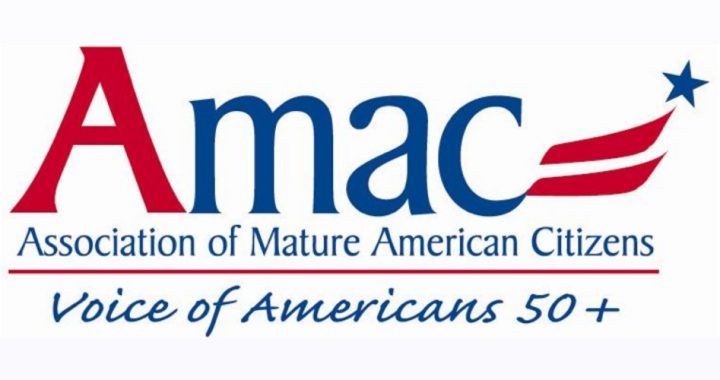
The Association of Mature American Citizens (AMAC), an organization with more than one million members, has grown as a conservative alternative to the liberal American Association of Retired Persons (AARP), espousing conservative views such as opposition to the Affordable Care Act. And it has recently announced its endorsement of the Convention of the States (COS) Project.
Concerning the announcement, the COS Project said, “Both organizations [AMAC and COS] share a common commitment to renewing conservative philosophies and the Constitution to strengthen the nation. The endorsement is a natural extension of both organizations leading the charge to restore the nation’s heritage, culture and values; together becoming a powerful voice for millions of Americans who want to rein in the power the federal government has amassed in recent years.”
Mark Meckler, the cofounder of the COS Project, said that he and AMAC consider the Article V Convention “the ‘emergency button’ the Framers gave us for exactly a time such as this. AMAC is a principled, rapidly-growing, mission-based membership organization, serving as an organizing counter-force against entrenched interests working to consolidate power in an ever-growing central government.”
The Constitution of the United States provides two methods for proposing constitutional amendments. One is the method that has been used all 27 times the Constitution has been amended, in which amendments are proposed by a two-thirds vote of each house of Congress. Ratification then comes from approval of three-fourths of the states, either through their state legislatures or special state conventions.
The other method to propose changes to the Constitution, which has not been used since our current Constitution was ratified, is for the states to call for a national convention to propose amendments. Any such amendments proposed would then have to be approved by three-fourths of the states, as with any other proposed change to the Constitution.
Proponents of the Article V “Convention of the States,” such as Michael Farris of Patrick Henry College, claim that the states, not the Congress, will control any convention process. Ironically, Patrick Henry himself expressed deep concern about the 1787 Philadelphia convention, which produced the present Constitution of the United States. “I smell a rat,” Henry said, and Henry’s concern is certainly relevant to the present discussion. The 1787 convention was called by the Confederation Congress for the “sole and express purpose of revising the Articles of Confederation.” Considering that convention could not be limited has led many conservatives to express concerns similar to Henry’s about a modern-day COS .
On the AMAC website, some members expressed outrage at the organization’s decision to support the COS. AMAC member Charles, for example, said, “Who in their right mind would think changing the Constitution would result in conformance by the political class?… If they don’t follow it now they surely won’t follow a revised version.”
Member Ivan Berry posted similar views. “It is not the Constitution that needs fixing, it’s the voting public and the states that accept all these so-called Federal bribes.” Berry no doubt was referencing how states give in to federal control over areas that the Constitution makes “reserved powers” of the states, in exchange for federal grant money.
In an effort to win enough support to get the new Constitution ratified, leading supporters of the Constitution, such as James Madison, promised they would push through amendments to the Constitution in the first congressional session designed to restrict the ability of the new federal government to encroach upon the rights of the states and individual American citizens. Ten of the twelve amendments sent to the states were adopted in 1791, and are known to us as the Bill of Rights.
The First Amendment stated very clearly that Congress would have no power to make any law abridging the freedom of speech or of the press. Yet, only seven years later, Congress enacted the Sedition Act, a law that did abridge freedom of speech and freedom of the press. At the time, Representative Nathaniel Macon of North Carolina expressed wonder that Congress could pass such a law in clear violation of the First Amendment.
Current supporters of the call for a national convention contend that such a gathering would “rein in” an out-of-control federal government. Perhaps. But even if such a convention was limited to such a noble cause, one must wonder what would make today’s politicians obey a constitutional amendment. They certainly ignore the clear wording of several parts of the Constitution, including the Tenth Amendment. Passing one or more new amendments would simply give those who ignore the Constitution even more parts to ignore.
It must be asked, is any possible good that would come from such a convention worth the grave risks involved?
The Congressional Research Service published a report in 2011 by Thomas Neale to provide Congress with some guidance, should enough states actually call for a COS. According to the report, conservative organizations have promoted the COS, but there are also well-known leftist organizations, such as MoveOn.org and Occupy Wall Street, that have mentioned the idea.
In the report, Harvard Professor Lawrence Lessig contended, “An Article V Convention would be equally attractive to the political left and right, because assuming that it would be an open convention, the delegates could consider, and conceivably propose, amendments from the agendas of both ends of the political spectrum.”



